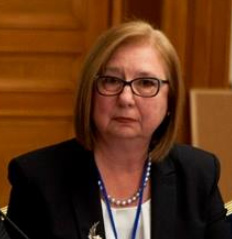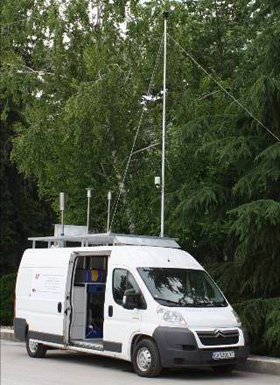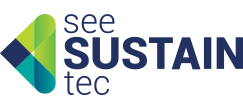Energy Agency of Plovdiv will participate again in the Smart Cities exhibition.
What projects they are working on and what they will present at their booth, you can find in an interview with Mrs. Liyana Adjarova.
 Mrs. Adjarova, will you briefly present Energy Agency Plovdiv?
Mrs. Adjarova, will you briefly present Energy Agency Plovdiv?
Energy Agency of Plovdiv is the first energy agency in Bulgaria established in 1999 under the SAVE II Program of the European Commission. For 20 years we have been promoting sustainable energy development and the integration of renewable energy sources at local, regional and national levels. Our expertise is based on our longstanding cooperation in over 60 national and European projects, which makes our services and activities pioneering, innovative and of high standard for Bulgaria.
The team of Energy Agency of Plovdiv makes energy and environmental analyzes and conducts energy planning, modeling and projection forecasts. To support the local authorities, we develop municipal strategic documents for air quality, energy efficiency and renewable energy sources, waste management. We conduct energy audits, design energy renovation of buildings, introduce ISO 50 001 for enterprises. We create intelligent energy management and monitoring systems and bioregion concepts for the smart cities. Within our two independent accredited laboratories we conduct measurements of air pollution emissions and immissions and test solid biofuels, compost and biodegradable waste.
What are your current projects?
In the recent years our focus has been on smart cities and support for Bulgarian local authorities that wish to integrate the "smart city" concepts in their development. During the exhibition we will present our latest projects and initiatives for the integration of intelligent technologies for energy management and monitoring on the urban level. We are also developing concepts for the creation of positive energy zones where energy consumption is optimized and innovative technologies for prosuming are introduced. We are working hard on the topic of air quality, where in a European consortium we develop a specialized sensor for indoor air pollution which will be piloted in several Bulgarian schools.

What will you present at the exhibition?
This year at the Smart Cities exhibition we will present a mobile laboratory for measuring the ambient air quality supplied with independent renewable energy source. The mobile laboratory can be positioned at different points to measure the parameters of particulate matter, nitrogen oxides and meteorological data. This information can be used to check complaints and signals for exceeding the limit values and for modeling pollution after disasters and accidents.
The Mobile laboratory is part of a modern innovative center for research, analysis, monitoring, modeling of air quality, energy consumption and greenhouse gas emissions at local level. It is the result of the cooperation between the Association of Bulgarian Energy Agencies and Energy Agency of Plovdiv. It is unique on the Balkans and using state-of-the-art information and communication technologies and software products for comprehensive analysis of the air quality. It is designed to support the development and implementation of integrated policies to reduce energy consumption and emissions of major air and greenhouse gas pollutants from national and local authorities.
 Which are the cities in Bulgaria with the most dirty air? What are the most urgent measures that need to be taken?
Which are the cities in Bulgaria with the most dirty air? What are the most urgent measures that need to be taken?
About thirty Bulgarian municipalities are considered to be with poor air quality, but in fact there are many more, because measurements are made in a limited number of settlements for a limited period of time. So the scale of the air pollution is not fully estimated. It is clear, though, that the domestic heating on wood with high humidity and low quality coal burned in old stoves and boilers is the main reason for the air pollution in the cities.
In first place, precise energy planning is needed to identify the potential for switching from primitive solid fuels to more modern and non-polluting alternatives, focusing on the deployment of individual, small RES installations for self-consumption. Strict fuel quality standards should be set and an accelerated implementation of the Ecodesign Directive should be encouraged. It is good to consider specific schemes to support energy poor and vulnerable households.
Do you also offer thermal imaging with a dron? To whom is this service targeted? What is achieved with it?
Infrared thermography is one of the most accurate and fast methods for detecting problems and defects in the buildings. It is easy to detect problems with window sealing, insulation, improper performance of components in prefabricated buildings, and the use of low quality materials.
In order to improve its services in the field of energy audits, the Energy Agency of Plovdiv uses a drone with a thermal imaging camera to capture the buildings from any angle, enabling the detection and visualization of places with high infiltration, heat bridges, gaps in insulation surrounding structures and other factors adversely affecting energy efficiency.
The service is aimed at public and private buildings and infrastructure. Together with the thermographic report, we also offer consultations and analysis of the results and recommendations.
Can you tell us briefly about the Laboratory for biofuels and compost?
And this year we will present the services and consultations of our specialized Laboratory for the testing of solid biofuels, biodegradable waste and compost. It is equipped with new modern high-sensitivity analytical equipment for carrying out analytical, research and expert activities. The laboratory is accredited by the Bulgarian Accreditation Service Executive Agency in accordance with the requirements of BDS EN ISO / IEC 17025. In March 2017, the laboratory was officially recognized and included in the European Pellet Council Testing Organization in the process of ENPlus pellet certification. Also, since January 2019, the laboratory has also been included in the list of testing organizations for the European GoodChips Scheme. This is a good achievement for Bulgaria, for pellet producers and recognition for the high quality of the services offered by the laboratory.
The laboratory is accredited for testing of: solid biofuels (wood and non-wood pellets, wood chips, wood and non-wood briquettes, firewood, waste wood biomass, agricultural waste biomass as biofuel feedstock), barbecue fireplaces, charcoal and charcoal briquettes for barbecue, compost, treated bio-waste (fermentation product, organic soil improver from the composting and anaerobic digestion process and the stabilized organic fraction from BT), sediments, soil and waste.
What visitors do you want to invite to your booth?
During the Smart Cities exhibition, we would like to meet with R&D organizations in the field of smart cities that create intelligent energy, environmental and resource solutions. We hope to attract ambitious Bulgarian cities that are motivated to be smart cities and are ready to demonstrate innovative technologies and approaches for sustainable energy development.
We will also be glad to welcome the wide public, for whom we can offer interesting materials in the field of energy consumption and production and the impact of our energy behavior on the environment and the climate.

 Mrs. Adjarova, will you briefly present Energy Agency Plovdiv?
Mrs. Adjarova, will you briefly present Energy Agency Plovdiv?
 Which are the cities in Bulgaria with the most dirty air? What are the most urgent measures that need to be taken?
Which are the cities in Bulgaria with the most dirty air? What are the most urgent measures that need to be taken?

